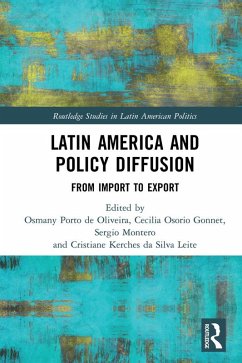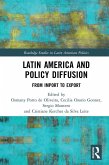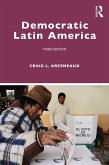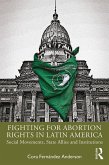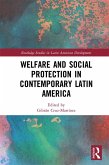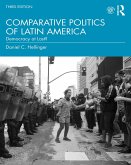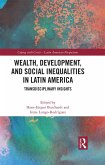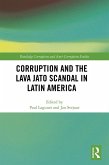Latin American countries have for a long time been importers of public policies and institutions from the Global North. The colonial legacy and resulting patterns of international relations during the 20th century favoured a course of adoption and hybridization of political institutions. In recent decades, a new conjuncture has emerged in which Latin American policies have started to diffuse South-South and even South-North.
Led by Brazil with Participatory Budgeting and the Bolsa Familia program, other countries in the region soon followed. The Bus Rapid Transit (BRT) system and bicycle policies in Curitiba and Bogotá have also reached wide international recognition and circulation. And yet, despite Latin America's new role as a policy "exporter", little is known about its dynamics, causes, and effects. Why have Latin American policies been diffused inside and outside the region? Which actors are involved? What driving forces affect these processes? This innovative collection offers a new perspective on the policy diffusion phenomena. Drawing on different examples from Latin American experiences in urban local policies and national social policies, experts present a new framework to study this phenomenon centered on the mobilization of ideas, interests and discourses for policy diffusion.
Latin America and Policy Diffusion will be of great interest to researchers, educators, advanced students and practitioners working in the fields of political science, public policy, international relations and Latin American Studies.
Led by Brazil with Participatory Budgeting and the Bolsa Familia program, other countries in the region soon followed. The Bus Rapid Transit (BRT) system and bicycle policies in Curitiba and Bogotá have also reached wide international recognition and circulation. And yet, despite Latin America's new role as a policy "exporter", little is known about its dynamics, causes, and effects. Why have Latin American policies been diffused inside and outside the region? Which actors are involved? What driving forces affect these processes? This innovative collection offers a new perspective on the policy diffusion phenomena. Drawing on different examples from Latin American experiences in urban local policies and national social policies, experts present a new framework to study this phenomenon centered on the mobilization of ideas, interests and discourses for policy diffusion.
Latin America and Policy Diffusion will be of great interest to researchers, educators, advanced students and practitioners working in the fields of political science, public policy, international relations and Latin American Studies.
Dieser Download kann aus rechtlichen Gründen nur mit Rechnungsadresse in A, B, BG, CY, CZ, D, DK, EW, E, FIN, F, GR, HR, H, IRL, I, LT, L, LR, M, NL, PL, P, R, S, SLO, SK ausgeliefert werden.

